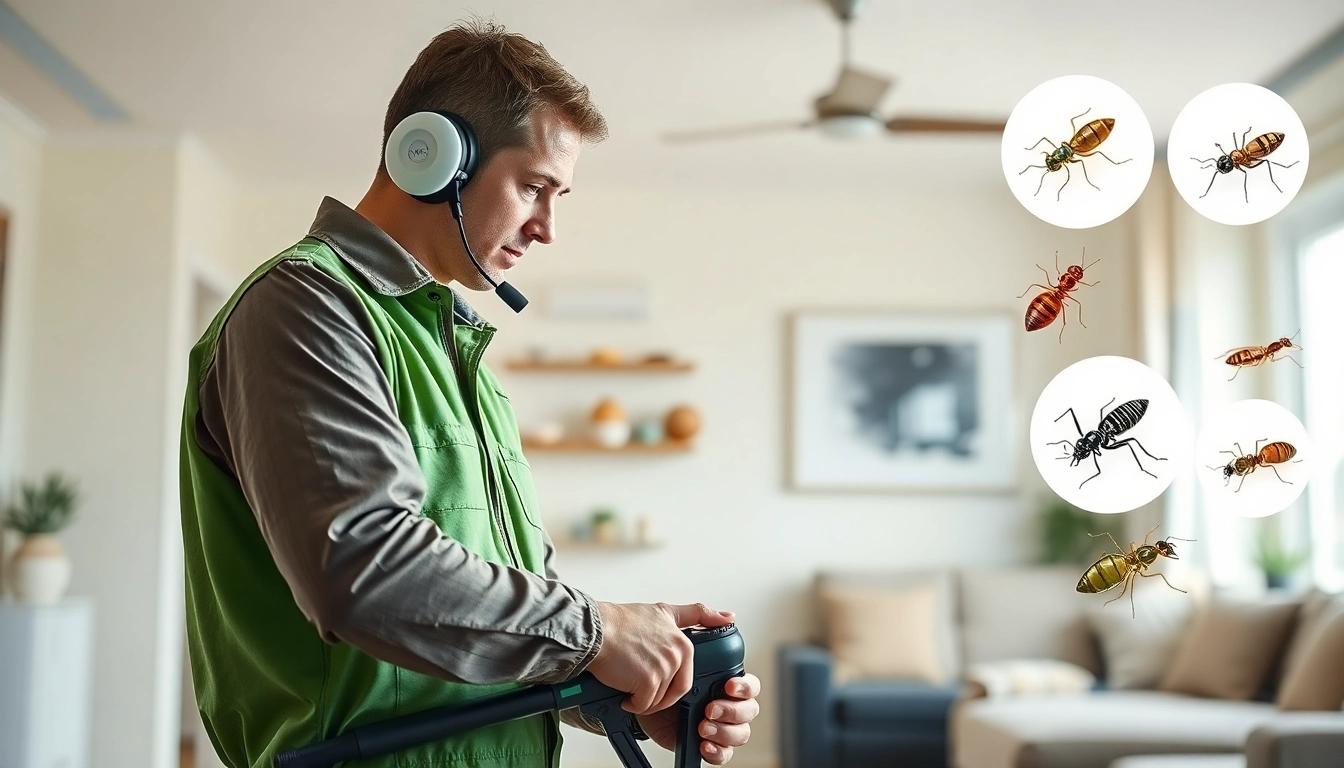Understanding Pest Control Services
Pest control services play a crucial role in safeguarding homes and businesses from unwanted infestations. With a myriad of pests that can compromise health, property, and peace of mind, engaging pest control services is often a necessary step for many. These services not only eliminate current pest problems but also help to prevent future infestations through a variety of techniques and approaches.
What Are Pest Control Services?
Pest control services encompass a wide range of methodologies designed to manage and eradicate unwanted pests in residential and commercial environments. This can include the treatment of insects, rodents, and other pests that harm property or carry health risks. The primary goal is to ensure that the environment remains safe for inhabitants.
Common Types of Pest Issues
Various pests can invade homes and businesses. Common issues include:
- Rodents: Mice and rats can cause property damage and spread diseases.
- Insects: Ants, termites, bees, and cockroaches can compromise hygiene and structural integrity.
- Bed Bugs: These pests are notorious for causing discomfort and anxiety, as they feed on human blood while guests sleep.
- Wildlife: Animals like raccoons and squirrels can invade attics and basements, posing risks to both property and health.
Importance of Professional Intervention
While DIY methods may seem effective for minor issues, professional pest control provides comprehensive solutions. Trained technicians possess the knowledge and tools necessary to effectively identify, treat, and prevent pest issues. They ensure that treatments are safe for inhabitants and the environment, using methods that comply with local regulations.
Benefits of Hiring Pest Control Specialists
Expertise and Knowledge
Companies specializing in pest control are equipped with the latest knowledge regarding pest behavior, biology, and treatment protocols. Their expertise allows them to diagnose infestations accurately, determining the best approach for eradication and prevention. This foundational understanding not only increases the effectiveness of treatments but also minimizes risks associated with improper use of pest control products.
Time and Cost Efficiency
Engaging a professional pest control service may seem like a large initial expense, but it often proves to be cost-effective in the long run. Professionals work efficiently to eliminate infestations, saving homeowners from the time spent trying ineffective home remedies. Additionally, ongoing pest issues can lead to more substantial damages and costly repairs, making preventative services a worthwhile investment.
Long-Term Solutions and Preventive Measures
Pest control specialists not only focus on treatment but also on prevention. They assess properties for vulnerabilities that may attract pests in the future, offering recommendations on maintenance practices. Long-term solutions may include installing barriers, regular inspections, and treatment plans tailored to individual needs and local pest conditions.
Choosing the Right Pest Control Service
Factors to Consider
Selecting an appropriate pest control service requires careful consideration. Some key factors include:
- Experience: Look for companies with a proven track record and years of experience in the field.
- Certifications: Ensure the company is certified and adheres to safety regulations.
- Specialization: Some companies focus on specific pests or types of properties, which may influence your decision.
Reading Reviews and Testimonials
Online reviews and customer testimonials provide invaluable insights into a company’s reliability and effectiveness. Look for patterns in customer feedback, focusing on the overall satisfaction and results achieved. Platforms like Yelp and Google Reviews can provide a clearer picture of potential service providers.
Evaluating Cost vs. Value
Cost should not be the only consideration when choosing a pest control service. Evaluate the value provided, including the scope of services and guarantees offered. Sometimes, a higher upfront cost can lead to more effective treatments and longer-lasting solutions, resulting in greater savings over time.
Common Pest Control Methods
Chemical Treatments and Exterminations
Chemical treatments remain a common approach in pest control, especially for significant infestations. Pest control professionals utilize pesticides that are effective against a range of pests while being mindful of safety regulations. It’s essential that these applications are performed by trained technicians to ensure that they are done safely and effectively.
Integrated Pest Management Approaches
Integrated Pest Management (IPM) is a more holistic approach that combines multiple strategies to manage pest populations. This may include biological control (using natural predators), habitat modification (altering the environment to make it less hospitable to pests), and cultural practices (changing routine practices to deter pests). IPM seeks to minimize chemical usage and environmental impact.
Eco-Friendly Solutions for Pest Control
As awareness of environmental issues increases, many pest control companies are now offering eco-friendly pest control solutions. These methods often use natural ingredients and aim to minimize harm to beneficial organisms, humans, and pets. Eco-friendly treatments can be just as effective while aligning with sustainable practices.
Aftercare and Maintenance Tips
Post-Extermination Guidelines
After the pest control treatment has been completed, it’s important to follow post-extermination guidelines provided by the technician. This may include recommendations for cleaning, ensuring that the area remains treated and free of further infestations. Understanding how to properly re-enter the space and maintain safety is essential for maximizing treatment effectiveness.
Preventing Future Infestations
Preventing future pest problems involves regular maintenance and vigilance. Homeowners should keep clutter to a minimum, seal cracks and openings in walls, and ensure proper sanitation practices are followed. Gardens and yards should be monitored for overgrowth and standing water, as these can attract unwanted pests.
Regular Maintenance Plans
Engaging a pest control service for regular inspections and treatments creates a proactive approach to pest management. Many companies offer maintenance plans designed to routinely assess and manage pest risks. Regular evaluations not only help catch potential infestations early but also provide peace of mind for homeowners.
